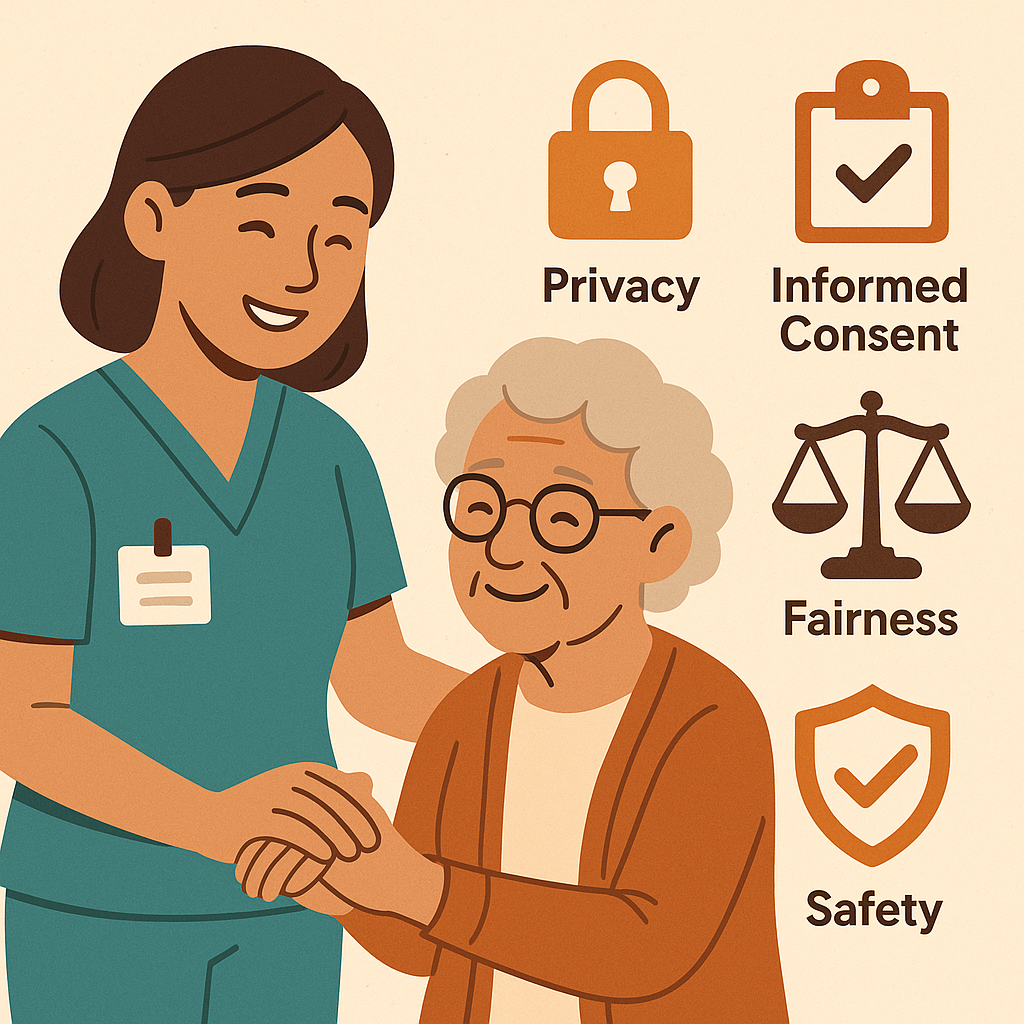Whether you’re studying for the NCLEX, a new registered nurse (RN nurse), or reviewing your nursing bundle, mastering these concepts will help you advocate for your patients and practice with confidence.
💡 Why Patient Rights Matter
Every patient has certain rights that must be respected in every healthcare setting. In fact, knowing these rights helps nurses build trust, promote safety, and maintain professional standards. Moreover, violating patient rights can lead to legal issues, complaints, and harm to both patients and staff.
📌 Basic Patient Rights Every Nurse Should Know
✅ Right to Informed Consent
Patients have the right to receive clear and complete information about their diagnosis, treatments, and available options. Before any care is provided, they must voluntarily agree or refuse.
💡 Tip for NCLEX: Always make sure the patient understands and consents. While only the doctor can obtain surgical consent, the nurse witnesses the signature and answers basic questions. Furthermore, nurses play a vital role in clarifying information and reducing anxiety.
✅ Right to Privacy and Confidentiality
Patients have the right to keep their personal and medical information private. Therefore:
- Only share details with healthcare professionals directly involved in care.
- Use secure systems for documentation and communication.
- Follow HIPAA regulations at all times.
RN nurse tip: Avoid discussing patient information in hallways, elevators, or public spaces. Additionally, make sure computer screens are locked when unattended.
✅ Right to Be Involved in Care
Patients have the right to participate in decisions about their care plan. Consequently, they can accept or decline treatments after being properly informed. Encouraging involvement helps build trust and improves patient satisfaction.
✅ Right to Respect and Non-Discrimination
Every patient deserves to be treated with dignity and fairness, regardless of their age, gender, religion, culture, or background. As a nurse, always maintain a non-judgmental attitude. Moreover, respect for cultural values improves the quality of care and strengthens the nurse–patient relationship.
✅ Right to Safety
Patients deserve care that is safe, evidence-based, and free from neglect or abuse. Therefore, registered nurses must report any signs of abuse, unsafe conditions, or malpractice immediately. In addition, always follow safety protocols to prevent medication errors and patient falls.
📚 Ethical Principles Nurses Must Follow
In addition to patient rights, every RN nurse should practice according to ethical principles that guide professional behavior.
1️⃣ Autonomy — Respect the patient’s right to make their own health decisions, even if you personally disagree.
2️⃣ Beneficence — Always act in the patient’s best interest and strive to promote well-being.
3️⃣ Nonmaleficence — “Do no harm.” Avoid any action that could cause pain, injury, or suffering.
4️⃣ Justice — Treat every patient fairly and equally, ensuring that resources and care are distributed properly.
5️⃣ Fidelity — Keep your promises, honor your commitments, and remain loyal to patients and colleagues.
6️⃣ Veracity — Always tell the truth. Furthermore, honesty builds trust and supports ethical communication.
🎓 Patient Rights and Ethics Tips for NCLEX
When preparing for the NCLEX:
✅ Expect questions about informed consent, confidentiality, and advocacy.
✅ If you’re unsure, always choose the option that protects patient rights and safety.
✅ Additionally, use your nursing bundle study guides to review ethical scenarios and practice test questions.
✅ Finally, stay up to date on ethical guidelines and institutional policies — they often appear in NCLEX-style questions.
⚠️ What Should Nurses Do If Rights Are Violated?
If you notice a patient’s rights being ignored or violated, you must act quickly:
- Speak up immediately to protect the patient.
- Report the issue to your charge nurse, supervisor, or hospital ethics committee.
- Document your observations clearly, objectively, and without personal opinions.
Remember: Advocacy is one of your core responsibilities as a registered nurse. By taking action, you help create a culture of respect and accountability.
🗝️ Key Takeaway
Patient rights and nursing ethics guide every decision you make as a nurse. By respecting these principles, you ensure safe, compassionate, and professional care — while also protecting your license. Ultimately, mastering these topics not only boosts your NCLEX performance but also helps you provide excellent care every day.

